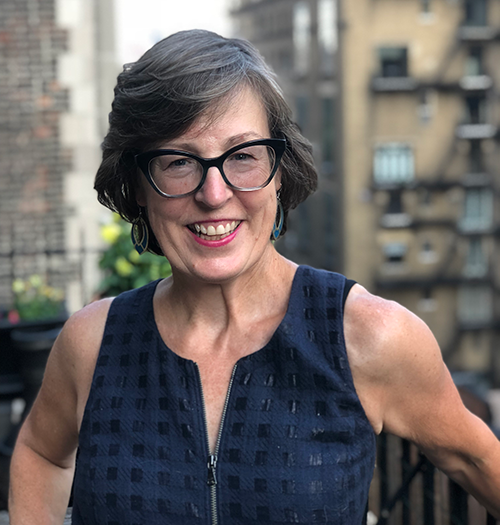I finally finished the entire film, Uninformed Consent (great title), and I have a lot to say about it. It is produced, written, and edited (and filmed!) by Todd Michael Harris.
Vaccine Choice Canada and Children’s Health Defense are both credited as executive producers. Both of these organizations have public positions that include skepticism of all vaccines. For example, the institutions have both promoted views tying autism speculation to long-used and well-tolerated vaccines – which are a key part of the dramatic increase in the length of average human life over the past 50-plus years.
The film challenges the safety and efficacy of the COVID-19 vaccination. The speed and universal support for the vaccine in the face of general fear of COVID leaves a lot of room for questioning the studies, the measurements used, and the overwhelming multi-national government push to vaccinate..
I founded the nonprofit MedShadow in order to educate people that all drugs have risk and that people have the right to determine for themselves which drugs to take or not take. We work every day to supply information on side effects of drugs and alternatives to drugs to people at absolutely no cost. But we hold ourselves to a rigorous standard. We demand high-quality research on which to base our articles, and we link those studies to our articles.
Before the vaccination was approved, I was against it, for many of the same reasons Uninformed Consent lists. However, I read the research, learned about the lengthy history of mRNA vaccine development, and I changed my mind. I got the vaccine. Read about my thought process here.
All told, I am sympathetic to the issues that Uninformed Consent raises, but unfortunately the film settles for unsubstantiated statements, wildly overstated assertions, glimpses of studies and statistics with no listing or links for the viewer to review them personally.
Separate from those (unforgivable) flaws, Uninformed Consent has some valuable things to say about transparency, about medical knowledge, consent, and the right to refuse a vaccine.
The film, through an unnamed voice and a series of about eight medical doctors interviewed, asked several legitimate questions. But rather than pursue answers, the director settled for shaded questions designed to create doubt. They didn’t admit that one of the only studies they mention in the film is one of a few standing against hundreds of studies that support the vaccine. The fact that it is an outlier study doesn’t make the study wrong, but it needs to hold up under examination. This film does not do the hard work of evaluating the study.
The film skips around offering a medical claim, then a complaint by a doctor removed from social media, onto a teenager tearfully saying his sister was killed by the COVID-19 vaccine, assertions that governments are controlled by pharmaceutical companies, back to an unsubstantiated medical claim, and so on. Here is a sampling of what I saw and thought:
Problem Areas in the Film
- Was COVID-19 really deadly? – We all agree that researchers announced, early in the pandemic, that those who were young and healthy had a low risk of dying and the statistics following supported that. (Note that the film accepts those stats, but rejects others from the same source to support their arguments)
However, older people, and those with certain underlying conditions, were at high-risk. We also know that there were inconsistencies on how COVID deaths were counted, so there might have been substantial overcounting or undercounting of COVID deaths. But there was a very large increase in “all cause mortality” for two years across many countries. If not COVID, what caused it?
- Did COVID vaccinations kill and harm people? Yes, but as the medical doctors in the film have to know, that is true for any medicine or vaccination. A small percent of people are harmed while the vast majority benefit from protection. It’s a cruel fact.
The film attempts to create an intolerance for even a single death due to vaccination, COVID-19 or otherwise. The harsh reality is the number of deaths and harm caused by long-established vaccinations are dwarfed by the millions, even billions, of lives saved and improved by vaccines. So far, the COVID-19 vaccination, the most studied and tracked vaccination in history, is holding to that pattern.
- The film (at minute 0:58) lists deaths of people and shows athletes falling down on the field with no evidence that those deaths were caused by vaccination, including the cardiac collapse of the famous Danish football player Christian Eriksen during a championship match against Finland. In fact, Radio Sportiva, the source of the rumor stated that the tweet reporting the link of the vaccine to the heart attack was faked .
- Outrageous twisting of quotes into lies. Here is an example, but it’s not the only one: The screen showed an article with most of the headline blocked out to show only: “Bill Gates: My ‘best investment’ turned $10 billion into $200 billion.” At the same time the voice over states: “Why trust Bill Gates, a billionaire who has no medical background and makes billions on vaccinations?”
The actual full headline is: “Bill Gates: My ‘best investment’ turned $10 billion into $200 billion worth of economic benefit.” Bill Gates donated $10 billion of his personal money for his nonprofit to use for vaccinations to save children’s lives. That “investment” in human life created $200 billion worth of economic benefit for the world, not to mention unquantifiable humanitarian benefits.
Those are not the words of a man putting vaccine money into his own pocket. Here, read it yourself. When phrases are taken out of context and twisted to condemn a person wrongly, I lose trust very quickly in the film.
- Were experts silenced? Doctors in the film complained that when they tried to practice medicine or preach on social media against the mainstream thinking, they were rudely silenced and lost their jobs.
Here’s one example: Dr Charles Hoff (at minute 1:27) references a single study from 2003 using a type of SARS-CoV, which may or may not be the same or similar variant, which concluded that adults were more easily infected with SARS than children. He had already had his medical license revoked because of COVID disinformation. He now seems surprised that the board further sanctioned him because he asked a nurse to tell a patient she did not need a COVID vaccination.
Why is he surprised, and how can he feel abused? He did exactly what the medical board told him not to do. Furthermore, the research upon which he is willing to risk his ability to work in medicine is a single, outlier study from Singapore. At one point, he says to the camera, “they were clearly looking to nail me on something.” He handed it to them.
I searched PubMed (the broadest listing of medical studies in the world) and found one study from 2004 on the effect of SARS-CoV on children in China. It showed that SARS was much more contagious between adults than children. The rate of transmission to children was about 38% and among adults over 75%. The study took place in 2003 and was a small study, 36 people. It was a preliminary investigation which means it was a pilot study designed to lead to larger studies, which either didn’t happen or the results were never published. Read that study here for yourself. Assuming that’s the study he’s quoting (and it’s the only one in the decade), he has misrepresented what the study was even studying!
- Hyperbole and exaggeration. Dr. Stephen Malthouse talks about the vaxed versus the unvaxed, being pitted against each other (a good point), but goes past reasonableness to compare it to Jews and Nazis.
Dr. Charles Shaw references pesticides, tobacco, and baby food with toxic metals in it, and then claims mRNA vaccines are the same. The faceless voice called those recommending vaccines “sociopaths committing murder” and are “known criminals.”
Considering the number of scientists who worked on the vaccine, and the quantity of doctors who support the vaccine, well, that’s a lot of sociopaths. And frankly, anytime you find yourself quoting Mussolini (as this film does), you’re probably on the wrong side of the argument.
- Assuming that scientists are lying when the facts change. When the pandemic broke, the medical world had almost no information on it. (There was that study from 2004 that showed it was very contagious.) The scientific process worked beautifully, but it worked in full public view for perhaps the first time in history.
Medical researchers start off with what they can see. In this case: it was very contagious. Then they start testing. Preliminary results are shared among the medical community.
Further studies might show preliminary studies do not hold up when a larger population is included. Hypotheses change. More studies happen. Researchers learn from other researchers. Slowly, consensus builds. It’s important to realize that what was thought to be true at first will often be found to be false later. It is a transparent and honest process.
A continuing storyline that opened and popped up throughout the 120-minute film was that of a terribly distraught man whose wife had died in the backseat of a car in a parking garage. Each time the film came back to him, we got another piece of the story.
First the incredibly sad finding of her body is explained. Then her terrible unhappiness that led up to her death is discussed, as he says she was “bullied.”
Not until just over an hour into the film, we learned she lost her job because she wouldn’t get the COVID-19 vaccination, was bullied in some unnamed ways, and then took her own life. Such a devastatingly sad story told by her husband, who vows to spend his life fighting for fairness.
The problem is, it wasn’t a vaccination harm story. It wasn’t an uninformed consent story. It was a personal story about a troubled woman.
Solid Points from the Film
In some ways, the film makes many good points, which should not be ignored.
- People have the right to refuse healthcare, even if a doctor knows it’s against their best interests. It’s the entire basis of informed consent. We, the patient, have the right to know all that is known about the anticipated benefits and the possible risks of any medicine, procedure, or vaccination before agreeing – or not agreeing – to take it.
- The revolving door between working at the FDA and jobs in pharmaceutical companies is reprehensible and puts the entire drug approval process at risk.
- Lobbyists and their clients influence politicians with donations. Why do politicians allow themselves to be swayed by lobbyists from single interest groups? Money. It’s true for lobbying in all areas – real estate, taxation, and more. Even Dr. Rand Paul, who is quoted in this film, talks to lobbyists and takes donations, also.
- Big advertising dollars from pharmaceutical companies keep the media from criticizing drug companies. I worked in advertising-supported media in the print magazine industry, and I know firsthand that this is true. This is why the MedShadow Foundation does not accept financial (or any other support) from pharmaceutical companies or medical device manufacturers.
These are doctors who are pushing back against the majority medical scientific opinions and that does not make them wrong. But it also does not make them right. Science (and all fields of study) changes with more information. It needs to be questioned. It needs those who speak against the majority and against money-driven decisions. But when a small group stands against the majority opinion, they must show a good reason why we should listen to them. Their statements are held to a higher standard. Scare tactics simply cause fear without a path to solutions. If only Uninformed Consent understood that.






